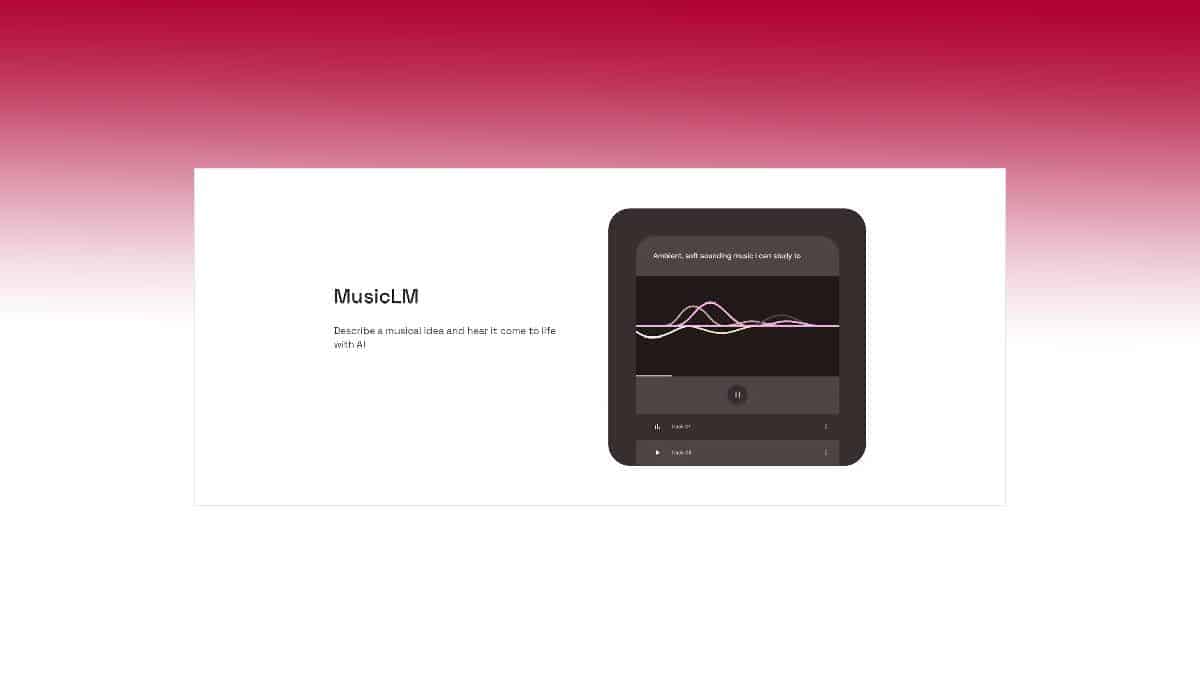Google Music AI – MusicLM explained

Table of Contents
After the worldwide success of text-to-image ai generated visual artworks, the next logical step for artificial intelligence software was to venture into the world of music. Google announced the creation of its very own music generating ai MusicLM earlier this year as part of its Test Kitchen initiative. It has already caught the spotlight better than Jukebox music AI created by OpenAi, who also bought us the infamous ChatGPT and DALL-E.
If you’re wondering what exactly this new music creating machine is, everything you need to know about Google’s MusicLM is explained right here.
Essential AI Tools
MusicLM – what exactly is Google’s Music AI?
At its core, MusicLM is a prompt-based music creation tool driven by natural language text prompts.
What this means is that users will be able to type up written descriptions of what they want their music to sound like, using descriptions of genre, mood, and instrument, and MusicLM will generate this for them. It can also respond to a variety of detailed stipulations such as adjusting the level of experience of the musician that its’s emulating, and can even create music focused on a given context or situation like working out, or studying.
MusicLM will generate two clips of audio in response to any given prompt, which the user is then invited to select which they prefer in order to help train the AI and better its generative abilities.
By casting the process of conditional music making as a “hierarchical sequence-to-sequence modeling task”, Google has enabled MusicLM to create high-fidelity music over which users have creative freedom no matter their level of musicianship.
Google has showcased hours of music tracks that MusicLM created on detailed text prompts by Google researchers in short clips to demonstrate the impressive and vast capabilities of this innovative software.
How can I use MusicLM?
While Google has released Music LM to the public, you will be required to join a waitlist on the Google Test Kitchen website. We do not have official waiting times for how long it may take.
It also should be noted that this initial release is actually still intended to help train the AI model, and that it is relying on the use of feedback and application use data to further refine it.
Whether you are after a distorted guitar riff or calming violin melody, the world will soon be your oyster with MusicLM. This is also not Google’s first AI software release this year – Google Bard AI chatbot also released a few months earlier. If you’re interested in the developing sphere of artificial intelligence, you could check you some of the best AI tools of 2023.
Final Thoughts
The use of AI in music composition has clearly started to make its mark on the artificial intelligence industry, and this Google Arts AI model will certainly be one to keep an eye out for in future months.
However, as the conflict between generative AI and copyright law only continues to grow, it is clear that we need to continue to understand further how AI should be treated in the music industry, especially given how much they are improving at song generation.
